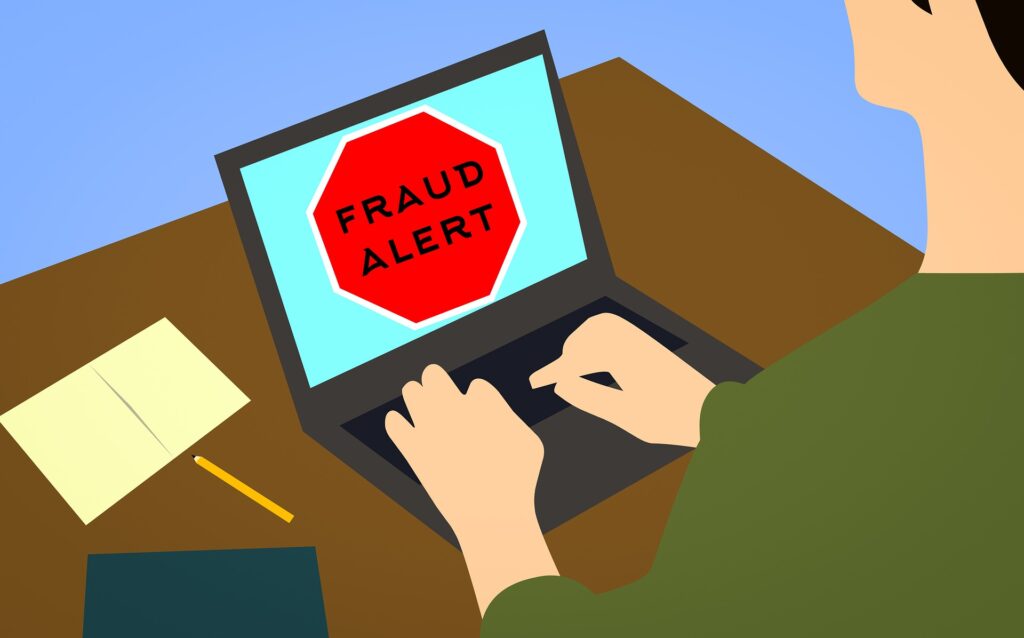The online world has opened up tremendous opportunities for everyone. Sadly, the crooks have twisted the landscape to a huge extent and are luring people using false narratives. Number of online scams present appear to be ever growing and this trend or phase is not something that might go down anytime soon. Losing money to an Online scam is one of the worst things that can ever happen.
The pain is likely to be both financial and emotional. While it is possible to recover money from scams, most people find the underlying process overwhelming. Also, the government authorities are not equipped to handle certain types of scams.
However, that does not mean that you should keep quiet. If you have lost money to internet hustles or other types of frauds, then reach out to us via the form below. Our team will help you with the recovery process for free and provide you with an actionable blueprint.

Types of Online Scam
An online scam is a type of fraud that is committed over the internet. This can include anything from phishing scams, where criminals try to trick you into giving them your personal information, to investment scams, where people are lured in with the promise of making a lot of money.
Online scams can be very difficult to spot, and even more difficult to avoid. That’s why it’s important to be aware of the different types of scams that are out there, and to know how to protect yourself from becoming a victim.
There are many different types of internet scams, and they can come in a variety of forms. One of the most common types of internet scams is phishing. Phishing involves sending an email or other message that appears to be from a legitimate source, but is actually from a scammer.
The message will usually contain a link that takes the victim to a fake website that looks identical to the legitimate one. The scammer then tries to get the victim to enter personal or financial information, which can be used to steal their identity or money.
Other types of internet scams include malware scams, where the scammer will install malicious software on the victim’s computer in order to steal their personal information; pyramid schemes, where the victim is promised a high return on their investment if they recruit other people into the scheme; and fake online auctions, where the victim bids on an item but never receives it.
How to stay safe from Online Scam?
There are a few things you can do to stay safe from online scams. First, be aware of the most common types of scams. These include phishing scams, where scammers try to trick you into giving them personal information; Nigerian letter scams, where scammers promise you a large sum of money if you help them transfer funds; and pyramid schemes, where scammers try to get you to invest in a bogus business venture.
Second, don’t respond to unsolicited emails or messages from strangers. If you do, you may be opening yourself up to a scam. Third, don’t click on links in emails or messages from strangers. These may be malicious links that can install malware on your computer or lead you to a scammer’s website. Finally, trust your gut. If something sounds too good to be true, it probably is.
Get in touch with our affiliated Cryptocurrency Forensic Specialists at CNC Intelligence for free by filling out the form below.
To update yourself regularly about the latest threats, visit our website frequently. As we cover the viral hustles daily, it will help you make much better decisions.
Detect Threats
Internet scams are becoming increasingly sophisticated and difficult to detect. They often involve fake websites or emails that appear to be from a legitimate source, but are actually designed to steal personal information or money. Some common traits of these scams include:
- The use of fake or spoofed websites or emails that mimic a legitimate company or organization.
- The use of urgency or fear tactics to get victims to act quickly without thinking.
- The promise of something free or too good to be true.
- The request for personal information such as passwords, credit card numbers, or Social Security numbers.
- The use of malware or viruses to infect victims’ computers and gain access to their personal information.
If you encounter any of these traits, be very cautious and do not respond to the request or provide any personal information. Instead, contact the company or organization directly to verify the legitimacy of the communication.
Online Scam Recovery Methods
There are a few things you can do to try and recover money from an internet scam. First, if you have paid by credit card, you can try to dispute the charges with your card issuer. This may be successful if you can show that you did not receive the goods or services that you paid for. Second, you can try to contact the company or individual that you paid, and request a refund.
This is often not successful, as the people who run scams are often difficult to track down. Finally, you can contact your local law enforcement agency and file a report. This may not result in your money being returned, but it can help to catch the people who are running the scam, and prevent others from being scammed in the future.
Apart from the things covered, there are other options present as well and we will discuss them below.
Wire Recalls
A bank wire recall is a formal request from a bank to another bank to return funds that have been transferred between the two banks. This can happen for a variety of reasons, but typically it occurs when there is a dispute over the funds that have been transferred.
For example, if a customer believes that they have been the victim of fraud, they may request a bank wire recall in order to get their money back. In other cases, a bank may recall funds if there are concerns about the solvency of the receiving bank.
Bank wire recalls can be a complicated and time-consuming process, so it’s important to be aware of the potential risks involved before agreeing to any bank wire transfers. If you are the recipient of a bank wire recall, you may be responsible for returning the funds to the sender, and you may also be charged a fee by your bank.
If you are the sender of a bank wire recall, you may not be able to get your money back if the recipient bank does not agree to the recall. Therefore, it’s important to be sure that you trust the recipient bank and that you have a clear understanding of the terms of the transfer before agreeing to send any money.
Chargebacks
A chargeback is a refund of the purchase price of a good or service to a credit card holder, initiated by the card issuer. Chargebacks are initiated when a cardholder disputes a transaction with their card issuer, and the issuer then contacts the merchant to refund the cardholder.
There are a few reasons why a cardholder might initiate a chargeback, including if they never received the goods or services they paid for, if the quality of the goods or services was poor, or if they were charged an incorrect amount. If a merchant receives a chargeback, they will typically be charged a fee by their acquirer (the bank that processes credit card payments for them).
Chargebacks can be costly and time-consuming for merchants, so it’s important to try to avoid them if possible. One way to do this is by clearly and accurately describing the goods or services you’re selling, and by providing excellent customer service.
Cryptocurrency Tracing (of Online Scam portals)
Cryptocurrency tracing is the process of tracking the movement of digital currency funds to identify suspicious activity. This involves tracking the transfers of cryptocurrency between wallets and exchanges, and identifying patterns that may be linked to criminal activity.
Cryptocurrency tracing is a valuable tool for law enforcement and regulatory agencies in combating money laundering, fraud, and other financial crimes. It can also help to track the movement of funds in real-time, which can be helpful in identifying and responding to emergencies.
Tracing is not without its challenges, however. The decentralized nature of many cryptocurrencies makes it difficult to track transactions, and the anonymity of some wallets makes it impossible to identify the owners. However, with the right tools and techniques, cryptocurrency tracing can be an effective way to combat financial crime.
Ways of reporting Online Scams
There are a few things you can do to report an online scam. First, you can contact the website where the scam took place and report it to their customer service. You can also contact your credit card company or bank if you have been scammed online and report it to them.
Finally, you can also file a report with the Federal Trade Commission or other concerned authority in your region. Make sure to voice your issue everywhere as it is likely to force authorities to take quick action. Remember, the sooner you take action, the better the odds are going to be.
Need Help with the Recovery process?
If you need help with the recovery process simply fill out the form below and get in touch with our team. Our staff will help you trace the flow of funds, handle legalities and retrieve funds at the earliest. Also, we offer all of our services for free and our only goal is to put an end to online scams.
If you want to retrieve funds from any kind of Online scam, fill out the form below and get in touch with us!
When you comment, your name, comment, and the timestamp will be public. We also store this data, which may be used for research or content creation in accordance with our Privacy Policy. By commenting, you consent to these terms.

